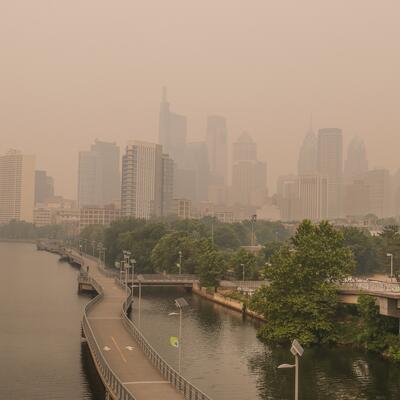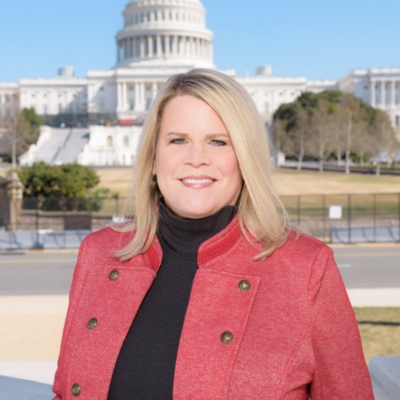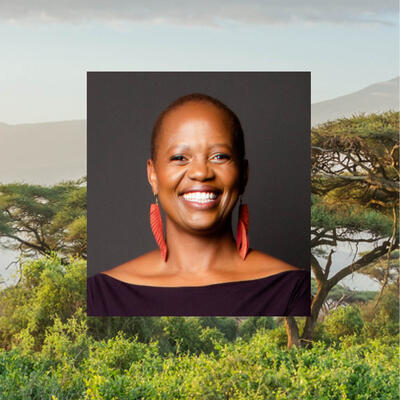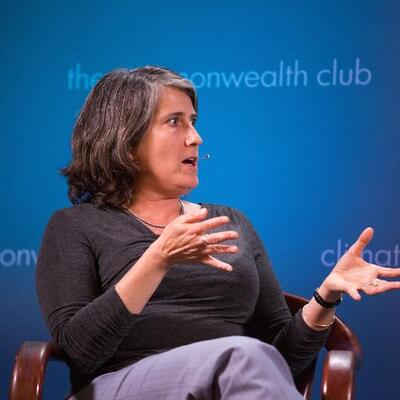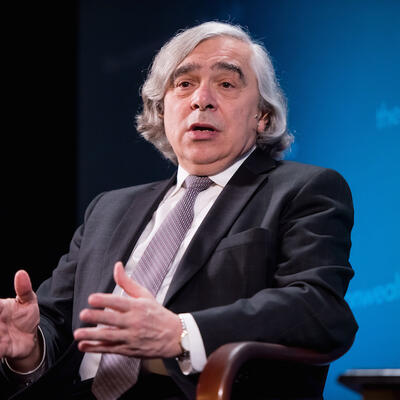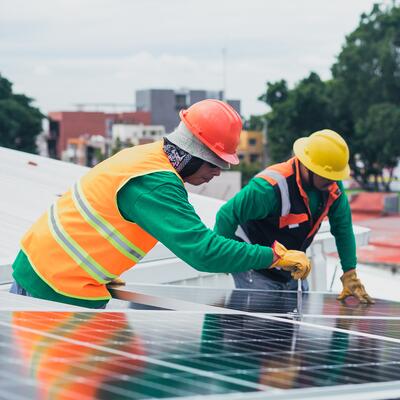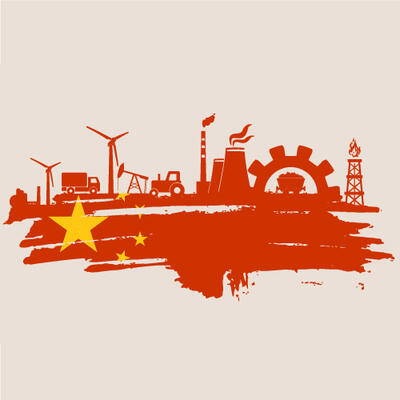
Will China Save the Planet?
Guests

Barbara Finamore
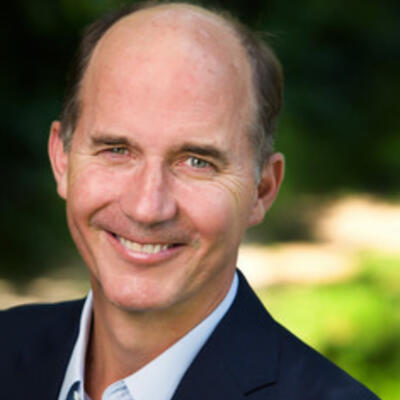
Carter Roberts
Summary
Chinese factories churn out parts and products that end up in our cars, our kitchens and our cell phones. And all that productivity has improved the lives of its citizens, many of whom can now afford cars and cell phones of their own. It’s also made China the global leader in carbon emissions. But in her new book, “Will China Save the Planet,” Barbara Finamore says that China may well take the lead in saving the world from environmental catastrophe. How? By phasing out coal and investing in green energy to power its factories and keep its cities moving. With the US government cutting efforts to curb carbon pollution, is it possible that China is our best hope for saving the planet?
Full Transcript
Announcer: This is Climate One.
The Paris Climate Summit saw nearly two hundred countries coming together for a common cause – to halt the threat of climate change. And to the surprise of many, one country emerged as an unlikely leader in the talks.
Barbara Finamore: Why did China come to the table? Because it has always in a way that they view as protecting their own national interest. The difference is how they define their national interests.
Announcer: China’s meteoric rise to become the world’s second largest economy has been fueled by massive amounts of coal. That’s also made it one of the world’s heaviest carbon polluters. But as author Barbara Finamore points out, China’s priorities are changing.
Barbara Finamore: They realize that not only is acting on climate change good for their economy but also it's a way of capturing the opportunities, the largest market opportunity of the 21st century which is clean technology.
Announcer: Will China save the planet? Up next on Climate One.
Announcer: Is China the world’s best hope to solve climate change?
Climate One conversations – with oil companies and environmentalists, Republicans and Democrats – are recorded at the Commonwealth Club of California and hosted by Greg Dalton.
Chinese factories churn out parts and products that end up in our cars, our kitchens and our cell phones. And all that productivity has improved the lives of its citizens, many of whom can now afford cars and cell phones of their own. It’s also made China the global leader in carbon emissions. But that tide may be turning.
Barbara Finamore: Well just like Bill Clinton said it's the economy stupid; every government needs to provide that prosperity. But China has now moved beyond that to understand that's not enough, it has to provide for better quality of life and environmental and health protections.
Announcer: In her new book, “Will China Save the Planet,” Barbara Finamore says that China may well take the lead in saving the world from environmental catastrophe. How? By phasing out coal and investing in green energy to power its factories and keep its cities moving.
But as Carter Roberts of the World Wildlife Fund points out, one country can’t do it alone.
Carter Roberts: All the nations of the world when they get back together again in Poland are gonna have to double down on their commitments. Because we are not on path to reach the goal set in Paris.
On today’s program we’ll hear about some bright spots in the climate fight– from electric buses in China to reforestation in Columbia. And about some unlikely corporate warriors who are working to reduce their global carbon footprints and green up their supply chains.
Barbara Finamore founded the China program for the National Resources Defense Council. In 1991, she was present during the crafting of the Beijing Declaration on Environment and Development.
Barbara Finamore: I witnessed that day China's emergence on the international climate stage. The premier at the time Li Peng had invited ministers from 40 developing countries to Beijing to work together on a set of joint principles to use in negotiating an international climate treaty which was scheduled to take place the following year in Rio.
Greg Dalton: So this is the lead up to Rio a couple years after scientists had kind of rung the alarm bell and climate change first made it onto the front page of the New York Times and countries are moving toward Rio to do something about it. And China feel like they had to be part of the parade, is that right?
Barbara Finamore: That’s right. Climate change was not at the top of China's list at the time, but it had already begun to research the issue of how climate change might affect China and what steps China might take. So when this meeting occurred China had already developed its own set of internal climate negotiation guidelines. And many of those guidelines made their way into the Beijing Declaration, which was the result of this meeting the joint developing country position and many of those guidelines went on to find their way into the framework convention on climate change at Rio.
Greg Dalton: So fast-forward 2007 you write about a climate change program, a first for developing country at that time. What did China do with its first climate change policy document?
Barbara Finamore: It actually put together a very comprehensive set of policies, targets, timetables, regulations, and a few market mechanisms which have begun to take on increasing prominence since that time. But really it was rather comprehensive it covered things, including population control or health.
Greg Dalton: And then 2009 there's a climate summit in Copenhagen. World leaders gather there, there’s a very famous story about Brazil and China meeting to negotiate behind the back of President Obama. He bursts into the room with Hillary Clinton. China was widely thought to have blocked success in Copenhagen. They didn't want a deal. Is that fair?
Barbara Finamore: It’s not necessarily that they didn't want a deal but they were determined to preserve the principle of common but differentiated responsibilities between developed and developing countries. They felt that developed countries bore the brunt of responsibility for climate change based on their historic levels, cumulative levels and per capita levels. And China was also very afraid of any movement to distinguish among developing countries based on their levels of ambition, because that would put China in a different category.
Greg Dalton: And this is right at the point where China's emissions were growing they hadn't yet surpassed the U.S. which they have now. Okay so the deal blows up in Copenhagen in 2007. 2012 you write about Xi Jinping’s party secretary; he coins this phrase “ecological civilization.” Lots of phrases come out of Chinese and other politicians, why is that significant?
Barbara Finamore: It’s extremely significant. It has been enshrined in China's Constitution. It has become a driver of action at every level of the government and it basically represents a change in China's long-term economic model from one that was based pretty much solely on GDP growth fueled by heavy industry, powered by coal, to a new normal that calls for slower but more high quality growth that protects the environment and people's health.
Greg Dalton: And they're doing this because some would say they see the legitimacy and survival of the regime at risk. There's a middle class that now has pretty good food standard of living and they want themselves and their children to breathe clean air. And there've been actual environmental protests, right. So this is can be a real core issue to move from the periphery to the core survival of the regime.
Barbara Finamore: And it's also tied up with the notion the realization that this economic model is not sustainable in the long term. There's something called a middle income trap where if China like other countries doesn't move beyond that model based on heavy industry it will never reach full prosperity. So this is an area where environmental issues, concerns about climate vulnerability and desire to continue its economic growth on a more sustainable basis have all come together.
Greg Dalton: And that growth is important because the basic deal has been the Communist Party stays in power, the people get rich and get toys and get wealthy and then that's the deal. You get wealth, we stay in power. You don't get political freedoms of the West but that's the deal. And so is that coming into some tension?
Barbara Finamore: Well just like Bill Clinton said it's the economy stupid; every government needs to provide that prosperity. But China has now moved beyond that to understand that's not enough, it has to provide for better quality of life and environmental and health protections.
Greg Dalton: Right.
Barbara Finamore: That's a big change.
Greg Dalton: Got a lot of money but you still want to breathe and live a long time. 2014, Xi Jinping and President Obama have bilateral talks they really do this breakthrough that provides the foundation for the Paris climate accord. Give us some insight into that; why China came to the table, Xi Jinping, that was a big deal for the two biggest emitters historic and current emitters to say we’re gonna solve this together.
Barbara Finamore: It really was fundamental in driving the momentum for the Paris agreement and also the speed with which it entered into force because as you say these are the two largest emitters in the world. Why did China come to the table? Because as I said before, it has always acted not just in the climate negotiations but in any international negotiations in a way that they view as protecting their own national interest, I mean that’s true of any country. The difference is how they define their national interests. They realize that not only is acting on climate change, good for their economy but also it's a way of capturing the opportunities, the largest market opportunity of the 21st century which is clean technology. So the way was paved for the two countries to show leadership and leadership matters.
Greg Dalton: Climate Action Tracker rates China as highly insufficient. So as much as they're seen as a somewhat of a well we’ll get into whether a clean tech leader or a coal leader or both, they’re not doing enough as most countries are not to hit the Paris target.
Barbara Finamore: China's Paris targets include a commitment to peak its emissions by 2030, and to make best efforts to peak earlier. There are signs that China is or may be on track to peak its emissions by 2025, or even according to some experts by 2020. And China's coal use, according to some experts, may already have peaked in 2013. So that's why their actual pledge can be rated insufficient because China likes to be conservative. They would rather meet those targets much earlier than pick a target that's highly ambitious and then fail to meet it because that would do damage to their international image. However Climate Tracker recently recalculated their estimates of how much CO2 China might emit by 2030, and it's something like 700 million tons less than they had originally anticipated because of the work that China is doing to cut its coal emissions.
Greg Dalton: So they put a mandatory cap on coal consumption in 2017, but also in January of 2017 the New York Times ran a story about 700 new coal plants backed by Chinese companies, most of them in China some abroad so they’re exporting coal. So I find this narrative confusing because there’s lot of different information. So many people remember China's opening a new coal plant every week. Maybe that's no longer true. So there is something called the Global Coal Plant Tracker which is a visual display of coal growing in India, this is 2000 to 2017 growing in India and China falling in the U.S. and E.U. So it seems like the real coal story is a little hard to get at.
Barbara Finamore: China tripled its coal consumption between 2001, the year that it joined the WTO, and 2013. That's still in people's minds as the time when China was building one new coal plant a week. But then, in large part because of its airpocalypse, China took a series of measures to cut its coal consumption and coal consumption was flat in 2013 and then dropped for the next three years. And as a result largely of China's actions global CO2 emissions were basically flat from 2014 to 2016 while the economy continued to grow.
But, you know, steering the world's second-largest economy away from coal is no easy task and there are going to continue to be blips along the way, in part due to resistance from coal companies resistance from local governments and the problem of where do you find new jobs for the millions of displaced workers. And so coal consumption began to rise again in 2017. However, most of China's coal plants are only running at 50% capacity. So they are being built, but they're not being run because the economic growth is down because of the rise in renewable energy. And China now risks to have something like $90 billion in stranded coal assets as a result of building these new coal plants that aren't being run.
Greg Dalton: The resistance from local officials regional officials is interesting because there’s something of a myth in the West partly largely perpetuated by Tom Friedman in his Hot, Flat, and Crowded book, the chapter called China For a Day, sort of advancing this myth that they can snap their fingers in Beijing and things happen in the provinces. So tell us about the local resistance that local officials like coal for good old-fashioned what tax reasons, economy reasons job reasons?
Barbara Finamore: All of the above. Plus, China has a unitary government. So local officials have for decades been rated by Beijing on how well they grow their local GDP. That's it. And so even though that has changed quite a bit, the central government said it should no longer be the only criterion and some progressive cities and provinces like Shanghai have dropped the GDP requirement altogether. But the mentality takes a while to catch up and local governments whose entire economies were built on coal still cling to that for the reasons you've described. For jobs, for tax revenue and, you know, old habits die hard.
Greg Dalton: Shenzhen has a special place in China's opening up to the West; that’s where Deng Xiaoping made his famous journey to the south to say to get rich is glorious and use with his village on the border with Hong Kong now it's a thriving city. It's also the home of BYD or Build Your Dreams, a Warren Buffett invested company where there is thousands of electric buses. So tell us about how Shenzhen is a glimpse into China's future, electric future.
Barbara Finamore: Shenzhen is the future of electric vehicles in China as far as I'm concerned. The emblem, although it’s spreading widely because of this company BYD, Shenzhen has basically transformed its transportation system and is now running completely on electric buses. By the end of this year it will have switched all its taxis to electric taxis. The version of shared rides that China has, Didi Chuxing is also changing their entire fleet to electric buses and Shenzhen is one of the busiest ports in the world. And they have set up shore power facility so that these huge container ships bringing goods from China to the U.S. and elsewhere can plug into electric power while they are at port in Shenzhen.
Greg Dalton: But the question of course is, is that electric power generated by coal as lot of it is in Hong Kong where you used to live. Because a coal fired electric car is not necessarily cleaner than a gasoline burning car.
Barbara Finamore: That's absolutely true. So the good news is that China is making that switch to renewable energy at a rate not seen anywhere else in the world. Last year, China installed half of all the new solar power in the world. In fact, they installed more solar power in one year than any country in the world had as their total cumulative installed capacity. China's goal for 2020 is to have five times the solar capacity as the United States did in 2017. So they installed more solar power than coal last year and they have one out of every three wind turbines in the world is in China.
Greg Dalton: It’s growing quickly, but it still what 2% of China's total electricity is renewable?
Barbara Finamore: That's right, that's right. But as the price continues to go down it dropped by 70% since 2009, the IEA and others estimate that just within a few years solar power will be the lowest cost resource in much of the world, same for wind.
Greg Dalton: Part of that is because of China applied its manufacturing juggernaut to solar. They drove down the price, drove most U.S. companies out of business in the process. Consumers benefited but now it's the subject of a trade war. So tell us where that is right now the solar tariffs and the trade war.
Barbara Finamore: So Donald Trump imposed a 30% tariff on solar panels from any other country any foreign country. I think this is very misguided because China's low-cost solar panels have driven the U.S. solar industry to be one of the fastest growing industries in the country, not the manufacturer of solar panel but the sales the installation and the maintenance. And in fact the job of solar panel installer was listed as the fastest-growing job category in the United States until these tariffs were imposed. And the Solar Energy Industries Association in the United States opposed the imposition of tariffs for this reason.
Announcer: You’re listening to a Climate One conversation with China expert Barbara Finamore. Coming up, we’ll hear more about China’s emerging green economy. And Carter Roberts of the World Wildlife Fund talks about partnering with major corporations to help the planet.
Carter Roberts: Every company navigates what they bring to social issues differently. When we’re at our best is when we engage companies and the unique strengths they have not just reducing their footprint but using their muscles for good.
Announcer: That’s up next, when Climate One continues.
Announcer: We continue now with Climate One. Greg Dalton is talking about China’s unexpected emergence as a climate change leader. His guest is Barbara Finamore, author of “Will China Save the Planet?”
Let’s get back to their conversation.
Greg Dalton: You write that because we we’re talking about cars in China, electric cars they’re cleaner but it's still a car-centric orientation and people who are involved in urbanism there’s so many buildings and so many cities growing so quickly in China as people move from the countryside to urban areas. How China urbanizes will have a big impact on the climate equation and are they still building car-centric cities whether they’re electric or whatever?
Barbara Finamore: They are taking on a lot of the worst qualities of our own urban development. We at NRDC actually have been doing a study every year of all Chinese cities to determine a walkability index how well are they supporting walking and they have a long way to go, they have a long way to go. But they’re focused on as I said before shared mobility. In fact, the charging station infrastructure is really focused also on e-buses, e-taxis and shared vehicles.
Greg Dalton: I was in Shanghai, I lived in Shanghai in the late 80s, I was there in 2006, went back four years later. The subway had exploded all over the place. It was amazing how many miles of subway they built in just a few years. China's national petroleum company forecast peak gasoline sales by 2025. That's a state owned company, you don't hear Exxon saying peak gasoline sales by 2025. Is that real?
Barbara Finamore: It is real. China is extremely concerned about its energy security. It is adding the equivalent in oil demand of a medium-size country every year. And most of that oil is imported China does not want to be in that situation that’s why they're putting such a heavy emphasis on electric vehicles.
Greg Dalton: So that they get the sun whatever it is, it’s energy independence. There’s something, a huge infrastructure project called Belt and Road, which is connecting the ports and highways of Asia, with Europe to facilitate the trade kind of along the old silk route. Some concerns about this is some form of economic, you know, binding countries through Chinese investment, but what's the carbon dioxide the climate impact of all the infrastructure massive Belt and Road?
Barbara Finamore: This Belt and Road initiative may become the largest infrastructure project in world history. It covers 70 countries in four continents. Two thirds of the world's population. And when you include China, these Belt and Road countries are responsible for 60% of the world’s CO2 emissions. So the decisions that China makes in what kind of investment in infrastructure it provides is really going to play a major role in the globe's ability to meet our Paris commitments and go beyond.
Greg Dalton: Some people talk about the economic or ecological migrants from China. People moving away from China because they can't breathe?
Barbara Finamore: If they can. Not everybody can move.
Greg Dalton: Most can’t but they try to get their kids abroad for school.
Barbara Finamore: Right, if they can afford it. If they can afford it. And also international companies are more reluctant now to base their operations in China because their employees don't want to bring their families as well.
Greg Dalton: Last time I interviewed the China expert Orville Schell it was a year or two ago. He was concerned that China could solve the conventional pollution problem by moving energy generation out to the west, basically putting it in the West where there's minority populations and lots of space and pollute the air out there. Pipe in the electricity to the coast where people live, solve the clean air problem but not solve the climate problem.
Barbara Finamore: That's right. China's air-quality action plan the one that just finished last December and the new one that has been announced do focus on the coastal cities in the East that are most polluted and most populated. But that does lead to the risk of carbon leakage and air pollution leakage out to the relatively less populated and cleaner West. That's why it's so important that China has instituted a mandatory national cap on coal consumption. Because coal is not only the leading source of CO2 emissions in China. I mean if coal consumption in China were a country it would be the largest emitter in the world but coal is also the largest source of China's choking levels of air pollution. So with a national cap on coal consumption, which is now being instituted in provinces, cities and businesses that's the tool that China needs to avoid that situation.
Announcer: That’s Barbara Finamore, Asia Senior Strategic Director at the Natural Resources Defense Council, and author of “Will China Save the Planet?” She spoke with Greg Dalton about China’s push towards a cleaner, greener economy.
But what about things closer to home? With the U.S. government backing off from the Paris agreement, will we be able to meet our own carbon reduction goals?
Carter Roberts is President and CEO of World Wildlife Fund in the United States. Part of his role there is to partner with some of the country’s largest corporations, helping them to address climate change by lightening their impact on the planet.
Here’s Greg’s conversation with Carter Roberts.
Greg Dalton: Lot of talks these days about corporations, cities and states stepping up to fill the void left by the federal government. Some environmentalists look at corporations as the villains; they don't like to talk to them, World Wildlife Fund tends to partner with corporations. So what do you see is the benefit of partnering with corporations moving toward Paris?
Carter Roberts: We’re practical in the sense that we want to get things done toward our mission, particularly in the absence of clear national leadership at a federal level. And for us for a long time when we look at the places we care about and one of the levers that we can pull on to make a change in how those places are either being conserved or used. Leading companies have always been a force for good, as long as they're setting clear targets. They have a plan for lifting their footprint on those places and for driving change throughout their supply chain. So we've made this one of the biggest parts of our work renewable energy and sustainable use of the planet. And we built a quite significant program with those partnerships and I'm quite proud of the progress we've made in partnerships with those companies.
Greg Dalton: And how do you know that they're not using you to greenwash?
Carter Roberts: Well stepwise it’s all about targets. Numbers matter and so when we partner with companies ambition is super important. That the ambition that they are setting for the change they want to see is commensurate to the issues we see in the world. So most of the companies we work with are now using science-based targets peer-reviewed targets that reflect that company's contribution to keeping us below 2° C as per the Paris agreement.
Greg Dalton: So it's Coca-Cola's portion of the global climate emissions, it’s their particular percentage of the problem and their ambition is we’re gonna solve our piece of it.
Carter Roberts: Exactly. It’s not a made-up number it’s a number based on real science real facts and a plan for accomplishing those targets over time. The other interesting thing about science-based targets is they require a company not just to account for the emissions within their four walls but also throughout their supply chains. And for most food based companies and retailers that’s 80% of their emissions, so it requires them to engage all of their suppliers and really track throughout their supply chain how the products are made where they came from and what are the consequences for those landscapes.
Greg Dalton: So Apple, for example, can't say, oh we don't own any factories that make our iPods or iPhones it’s like no; you’re responsible for that supply chain for your product.
Carter Roberts: We have a wonderful partnership with Apple that is built on reforestation efforts in China; it’s a reflection of their supply chain and keeping the impact of the world better than net zero, actually net positive.
Greg Dalton: One of the companies that you’re partners with, McDonald's, in fact, there was a Grist article in 2011 the headline was World Wildlife Fund gets in bed with McDonald's and gives birth to darling sustainability program. So tell us what you're doing with McDonald's.
Carter Roberts: McDonald's is a company that is consequential in the world. They feed 1% of the world’s population every day. Their emissions are equal to the country of Sweden. McDonald's has set a target of reducing their greenhouse gas emissions by preventing 150 million tons of greenhouse gas emissions and reducing their emissions by 36% by the year 2030. Any company of that size working with them to reduce their emissions throughout their supply chain throughout their restaurants throughout their facilities is going to make a dent in the problem and even further it has these ripple effect throughout their suppliers because they have hundreds of suppliers within their work. And so you may take issue with some aspects of some of the companies with whom we work. But the fact remains that when we work with the biggest ones and their suppliers, we see a direct line of sight to emissions reductions and long-term changing the narrative in this country about the need for regulatory reform, putting a price on carbon and creating the need to support companies and create the context for companies to do the right thing and more of it.
Greg Dalton: I guess as a journalist I think about disclosure. So do you disclose when you write about a company and then there is a relationship with them on the WWF website?
Carter Roberts: Oh yeah we have a global disclosure program about all of our partnerships. And the targets that are set in those partnerships and how we operate. We disclose whether or not we receive money from companies. But almost always the money that we receive is to cover the costs of moving, creating the conditions to help the company the targets that they've set. And so for us in our relationship with companies the fundamental basis of that are the targets. It is setting the targets, measuring results toward those targets over time and maintaining the right to disagree so that we don't become a marketing instrument. Instead, we become a partner and a challenging partner to help them find a new way to set targets and to also achieve them.
Greg Dalton: What are the consequences of missing targets? Because one of the claims against politicians is they make pronouncements about 10 or 20 years when they know they're going to be out of office and they’re gonna be retired and they're not gonna be around to be held accountable. And the timeframe, average CEO is maybe five years if they're lucky. So what's the accountability mechanism for these targets
Carter Roberts: It’s a great question. It is the question that I think about every day. There are hundreds of thousands of companies that have made commitments around deforestation, that have made commitments around emission reduction. The best companies are reporting transparently on the progress they're making even when they're coming short. A lot of the partners we have do that.
You're right that over time what you want to see from companies at the board level and you want to see it with investors is committees, is board members, it’s leadership on the company that hold their staff accountable for making progress. The best companies it’s part of the performance review they have of their leaders throughout the company is to have a measure of sustainability. And that is part of their merit increase it’s part of the bonuses that they set. And so the best companies we work with it put that in place. But it's all about not just setting targets but thinking about what's the real engineering of making progress toward those targets motivating your employees and holding yourself accountable. The best companies do that. And let me just say with other companies there’s still work to be done.
Greg Dalton: I think of Lee Scott started Walmart on their sustainability. People talk a lot about Paul Polman at Unilever. Oftentimes after there's a really green CEO the next CEO isn't quite as green because they don't feel like they own it as much. Can you think of a company where there was a really green CEO followed by an equally passionate green CEO?
Carter Roberts: Yeah, here’s what I know about CEOs as one myself is every CEO wants to put their own mark on the company. And the smart ones build on the best things that their predecessors did, but they put their own mark on it. Lee Scott has been succeeded by two CEOs and now Doug McMillon who is the current CEO of Walmart launched Project Gigaton. And he’s made it one of the signatures of his work in that company and his conviction that they are a company full of good people who wants to make a difference in the world. And sustainability has become a hallmark of that company. When Neville Isdell stepped down as the CEO of Coke he was succeeded by Muhtar Kent. Muhtar put his own mark on sustainability by continuing to work on water, but also combining that with Coke’s leadership on women's issues and looking at water and women in the context of the world as two pillars of their sustainability and social impact work. So what we’ve seen is the best companies find a way to continue it because it's not just a marketing tool. It is fundamental to who they are and their comparative advantage. With Coke, they were determined because of a water crisis to become a leader on water. And Walmart is determined to be a leader on sustainability. And McDonald's has been after the sustainability issue for 25 years.
Greg Dalton: Didn't realize that.
Carter Roberts: They started way back in the day when a young staffer at Environmental Defense Fund worked with them to eliminate Styrofoam packaging. And both, EDF where my wife worked, and McDonald's received a prize in the Rose Garden for those initial steps in looking at supply chains. And now they built on that with the science-based targets initiative that brings that to scale. So the best companies, it becomes part of the warp and weft of who they are and it just changes leader to leader.
Greg Dalton: But I certainly know from Walmart they don't do anything that doesn't make economic sense. There’s no squishy numbers; everything has to save energy is a proxy for waste. Saving waste is saving money. So this is really about dollars and earnings per share.
Carter Roberts: One thing I’ve learned is every company is different. You generalize companies at your peril. And for Walmart, delivering goods to people at the lowest possible price is fundamental to their business model. And part of the power of the shift to renewable energy and avoiding food waste and more efficient transportation is it removes cost from their supply chain and enables them to deliver the lowest possible price to the consumer.
For Coke, it’s a company that’s a marketing engine and their ability to reach people, make them aware of the issues of water, create a movement on water, make people feel like they’re part of the solution is a lot of the motivation for Coke. And so what we've learned is every company is different. Every company navigates what they bring to social issues differently. And the smart ones use their what I call their superpowers, whether supply chain the power of the buyer, marketing, in Silicon Valley it’s about engineers helping solve problems of the day. When we’re at our best is when we engage companies and the unique strengths they have not just reducing their footprint but using their muscles for good.
Announcer: You're listening to a conversation about harnessing corporate power to combat climate change, with Carter Roberts of the World Wildlife Fund. Coming up – just how many planets do we need, anyway?
Carter Roberts: When I started we were at about 1.2 what humanity demanded from the world and what it could sustain over time. Now we blown passed 1.5 planets and it is clear that we've got to do something.
Announcer: That’s up next, when Climate One continues.
Announcer: You’re listening to Climate One. Greg Dalton is talking with Carter Roberts, President and CEO of the World Wildlife Fund, about global efforts to fight climate change.
Let’s continue with their conversation.
Greg Dalton: There’s something called the We Are Still in Coalition; who is that and what are they doing?
Carter Roberts: On the day that Donald Trump announced that the U.S. was going to leave the Paris agreement it sent shudders throughout American society and particularly the environmental movement. And on that day one of our staffers reached out to Mayor Bloomberg's office and a handful of NGOs started something called We Are Still In which essentially reached out to business leaders, mayors, governors, presidents of universities, and more to formally sign on to a statement that they were still in, their institutions were still in the Paris agreement and committed to make progress against climate change. That coalition now includes 3,500 institutions across the country; it represents half the country's population and half the country's GDP.
Greg Dalton: That's a lot of power and a lot of people are looking for cities and states to make up the gap from the federal government. Not only stopping but going trying to push backwards on the U.S. commitments to Paris. There was a report recently from Data-Driven Yale which said that all city, state, and company commitments will get the U.S. halfway to its Paris commitment. So cities and states are not enough.
Carter Roberts: So are you a glass half-empty person or a glass half full? For me getting halfway there through subnational commitments is a good thing.
Greg Dalton: I think some people are claiming city and states can, forget Donald Trump, cities and states can really fill it of course happier with cities and states but I think that their contributions is in some environmental quarters being oversold.
Carter Roberts: I think it’s being appropriately captured as taking a big chunk out of the problem that we have for making forward progress at a time when our federal government is not doing what it should do and creating the foundations and the momentum to lead to a moment where we would put a price on carbon and we would create a regulatory framework that matters. Because at some point in the future the next president and the next congress will wake up and see thousands of commitments being made by companies of different shapes and sizes it’s gonna see regulatory frameworks in cities and states that are of different shapes and sizes. And there will be enormous pressure and movement for us to have a predictable, reliable, singular framework for what companies, cities and states do in this country. And that moment is gonna come sooner rather than later. So to me all these work streams on subnational action is all about demonstrating that action is happening, that more is needed. Comparing solutions and creating relationships where it can happen, but keeping the pressure on that a national regulatory framework is still important. And all the nations of the world when they get back together again in Poland later on this fall are gonna have to double down on their commitments because we are not on path to reach the goal set in Paris.
Greg Dalton: And there's quite a debate actually within some environmental groups about that fact; not being on path. And some will say don't tell the truth about how far off the path the global economy is because that will be bum people out and disincentivize them, you know, don't tell grandma how bad her cancer is because then grandma won't heal as well. And others who say, hey we got to get real and tell the truth. And there’s quite a tussle and sometimes it’s quite messy between the messaging. Where do you come down on that?
Carter Roberts: Oh there’s no question that we come down on speak the truth be quite clear about the numbers and where they lie and have necessity be the mother of invention. It is part of what we do at WWF; every two years we publish something called the Living Planet Report that evaluates how the world is doing in terms of its natural systems, species. And that trend line is going in the wrong direction. But we also publish the footprint of humanity on the planet and how many planets we require. And when I started we were at about 1.2 what humanity demanded from the world and what it could sustain over time. We require 1.2 planets. Now we blown passed 1.5 planets and it is clear that we've got to do something. There’s nothing like speaking the truth and holding up the specter of the devastation that will happen if we don't solve these problems. But at the same time you’ve got to in there same breath say and here's what we’re gonna do about it and here are the solutions that we can pursue. It’s not enough to just point out the problems you've got to pivot.
Greg Dalton: The word solution is interesting. It’s used a lot people need to think they can fix something, but I've recently come to think that solutions we’re not gonna really solve this we’re gonna be living, anyone who's alive today is gonna live on a changing planet a dramatically changing planet. And there is no solution there's ways to soften and lessen but this is not like solving, done, it’s over. Is that fair?
Carter Roberts: That’s fair. That’s as fair as saying there really is no pristine part of the planet right now. You know, there are these myths we have in the environmental world that there are perfect places to save and we can absolutely solve this problem in a short amount of time. The world is already changing around us, both in terms of climate change and in terms of the destruction and alteration of habitat. And we don't just have one horseman of the apocalypse in the world right now it's not just climate change. Food production, infrastructure design, overfishing and all the rest is destroying a lot of places in the world that we care about that we depend upon and climate change exacerbates that. People asked me what do you worry about? Do you worry about when you go to bed do you worry about climate change? I actually worry about running out of planet. And that is the combination of unsustainable resource use and climate change, bouncing off of each other in a way that ultimately could destroy our home.
And so I believe, I'm an optimist in the sense that I believe we got within our hands right now solutions. The question is can we scale them up fast enough to reduce the impact that we’re already seeing to keep it from getting worse. And when I’m with my kids when I'm with corporate partners when I'm with politicians from different parts of the world. The world realizes what's happening. The world is devoted and committed to making it. So there's inertia, there are countervailing forces there's money being spent to confuse and delay. But our job is to move as quickly as we can, which is why when you look at the progress that’s being made the political leadership in different parts of the country and in the world and corporate leadership, I take heart that there's a whole body of evidence and people that are making progress. The question is how do we give them the tools to scale it up.
Greg Dalton: And when you look outside the United States, World Wildlife Fund is very active international and I know you have basically a chapter a unit of international --
Carter Roberts: Very active internationally would be an understatement.
Greg Dalton: So what countries are most promising in terms of the addressing both the ecosystem the resource extraction you've talked about as well as climate? Where are the real shining examples?
Carter Roberts: Well you don't always get both of those at the same time but look at Brazil. Brazil has may have enormous challenges politically and economically right now, but they have stepwise created the conditions for keeping the Amazon intact. They have seen a massive reduction in deforestation levels in the Amazon. They have converted most of their energy to renewable sources of energy through the use of biofuels and more. And they’ve become a real leader in both world conservation but also reducing their greenhouse gas emissions.
China has become a world leader on climate change right at the moment that our government has decided to tack in a different direction. And they are making enormous investments in renewable energy of all various sorts and also taking on the issue of sustainability as they invest in other countries. So, but I would be remiss if I didn't mention Bhutan which is not just carbon neutral but carbon negative. From the king of Bhutan to the Prime Minister of Bhutan they have done extraordinary things to keep their country intact 70% forest cover but also deliver greenhouse gas emissions, well actually they’re a net sink of greenhouse gases in the world. It’s pretty cool.
Greg Dalton: Forests have been traditionally on the edge of the climate conversation. I saw that changing in Paris I thought of Paris for us were more front and center. They’re becoming more front and center in the United States. So talk to us about the global health of forests, you work a lot with forest in terms of ecosystems, etc. Is that a bright spot or is that a dark spot, forests?
Carter Roberts: Forest are a bright spot with some notable exceptions. As you mentioned they've emerge more on the world stage and the reason they've emerged is because the essence of Paris which was nationally differentiated commitments means that a significant part of the world are only gonna be alerted to their emissions by keeping their forests intact. It's not by building different types of energy plants per se, it's by reducing deforestation. And so you see bright spots, President Santos who just is about to step down as president of Columbia quadrupled the number of parks and protected areas in his country, created a carbon tax, committed a percentage of that carbon tax to keep those forests intact. And have done so all part and parcel of the peace agreement in that country. It's pretty cool. They’ve seen some increases but relative to what it could've been the deforestation rates in that country is still pretty minimal.
Peru is working hard to do the same. Brazil has done the same. And you're beginning to see more and more countries particularly in Latin America but also in Asia begin to take the steps to keep their forests intact, not just because of greenhouse gas emissions but because they’re a source of clean water. They are where a lot of their indigenous groups, first nations and cultures live, and it is also part of keeping their economy intact because of tourism. So it's a bright spot. It's also a bright spot because we've gotten better at monitoring forests and whether or not their emissions reductions are real; there are much better tools for satellite imaging. And they're much better national level commitments to prevent leakage and to create the financial conditions and mechanisms to keep those forests intact over time. Absolute bright spot.
Announcer: Greg Dalton has been talking about the many ways countries, subnationals and corporations around the world are working to meet the goals set by the Paris Climate Accord. His guests were Carter Roberts, CEO of the World Wildlife Fund, and Barbara Finamore, author of “Will China Save the Planet?”
To hear all our Climate One conversations, subscribe to our podcast at our website: climateone.org, where you’ll also find photos, video clips and more.
Greg Dalton: Climate One is a special project of The Commonwealth Club of California. Kelli Pennington directs our audience engagement. Tyler Reed is our producer. The audio engineers are Mark Kirschner and Justin Norton. Anny Celsi and Devon Strolovitch edit the show. The Commonwealth Club CEO is Dr. Gloria Duffy.
Climate One is presented in association with KQED Public Radio.
